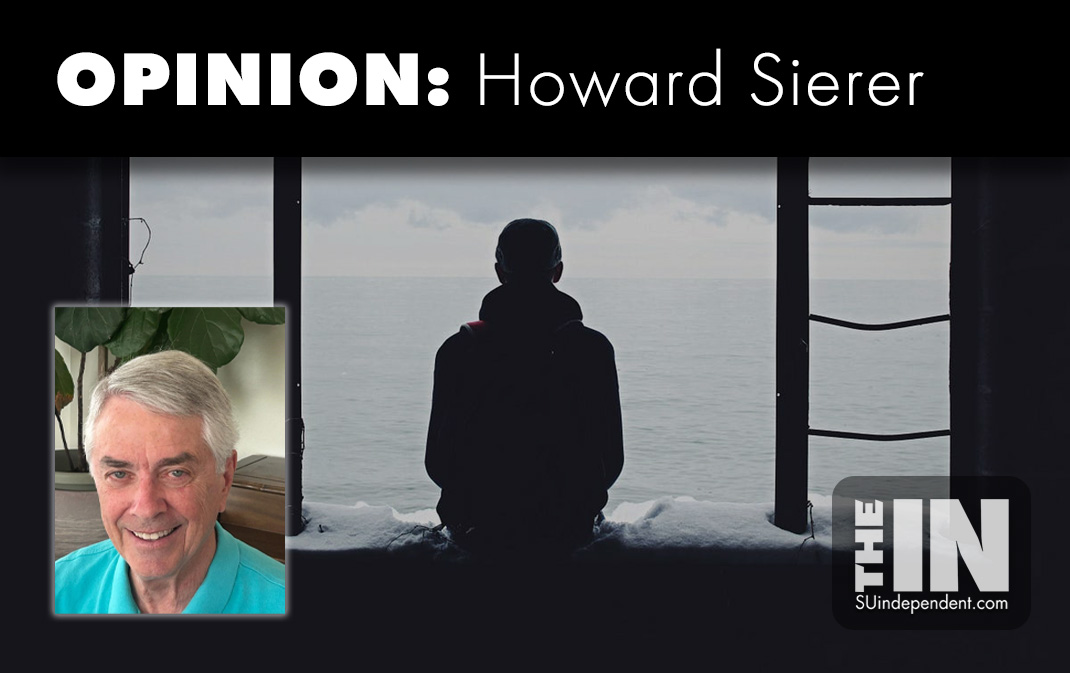
Am I Racist?
– By Howard Sierer –
“Am I Racist” is a mockumentary that uses an actor posing as a liberal activist to discredit unsuspecting diversity, equity, and inclusion (DEI) experts. The actor, Matt Walsh, asks straightforward questions and lets the film’s DEI practitioners – who willingly explain their practices – discredit themselves with the meaningless, gobbledygook answers they peddle to corporate customers for outrageous fees.
One of those practitioners, Robin DiAngelo, is the author of a best-selling book, “White Fragility,” and appears in the movie. She now maintains that the movie promotes racism. Since she makes her living charging as much as $15,000 for a two-hour DEI presentation to schools, government agencies and Fortune 500 companies, it’s likely that she now sees her appearance as bad for business.
It turns out that distinguished academic researchers at Harvard and elsewhere have been “crying in the wilderness” for over a decade that so-called training by DEI consultants like DiAngelo is next to worthless.
An assessment of the DEI literature, published in the Harvard Business Review in 2012, was titled, “Diversity Training Doesn’t Work.” According to the article, one study of “829 companies over 31 years showed that diversity training had ‘no positive effects in the average workplace’ ” and that millions of dollars were spent annually on “training resulting in, well, nothing. Attitudes—and the diversity of the organizations—remained the same.”
Sociologists Frank Dobbin and Alexandra Kalev reached a similar conclusion in 2016 paper in the Harvard Business Review. They noted that “hundreds of studies dating back to the 1930s suggest that antibias training does not reduce bias, alter behavior or change the workplace.” According to the authors, “two-thirds of human resources specialists report that diversity training does not have positive effects, and several field studies have found no effect of diversity training on women’s or minorities’ careers or on managerial diversity.”
Researchers at a consortium of universities designed their own DEI training course and administered it to more than 3000 employees with the intent of rigorously measuring changes in employee attitudes and behaviors. Their results showed that diversity training can backfire, eliciting defensiveness from the very people who might benefit most. And even when the training was beneficial, the effects may not last after the program ends.
In a recent column, I noted that merit, excellence and intelligence (MEI) are beginning to replace the progressive left’s increasingly-discredited diversity, equity and inclusion (DEI) as criteria in college admissions and hiring. Companies like Microsoft and Tractor Supply have dismantled their DEI organizations as have most colleges and universities.
I believe most of us are in favor of diversity, equity and inclusion in principle. But there is no way to force those ideals on individuals without institutional discrimination. Nonetheless, most of us believe that the civil rights movement of the 1960s was a positive success. Why did it succeed?
Social commentator and columnist Jason Riley explains that “the genius of the civil-rights movement was its advocacy for colorblind policies and a universal standard of conduct. By contrast, today’s diversity experts want all of us, white and nonwhite, to fixate on our ethnic identities, to obsess over accidents of race and gender and sexual orientation morning, noon and night. For them, human relations boil down to nothing more than group power structures—you are either an oppressor or a victim.”
DEI activists argue as does Ibram X. Kendi that the “only remedy to past discrimination is present discrimination” and the “only remedy to present discrimination is future discrimination.”
Riley says that “if your main focus isn’t ending racial bias but merely changing the color of the person on the receiving end, you aren’t seeking justice. You’re seeking payback. You’re prolonging racial tensions. And as Walsh’s timely documentary makes clear, you’re part of the problem.”
Enjoy the movie. RIP, DEI.
Viewpoints and perspectives expressed throughout The Independent are those of the individual contributors. They do not necessarily reflect those held by the staff of The Independent or our advertising sponsors. Your comments, rebuttals, and contributions are welcome in accordance with our Terms of Service. Please be respectful and abide by our Community Rules. If you have privacy concerns you can view our Privacy Policy here. Thank you!
Click here to submit an article, guest opinion piece, or a Letter to the Editor




